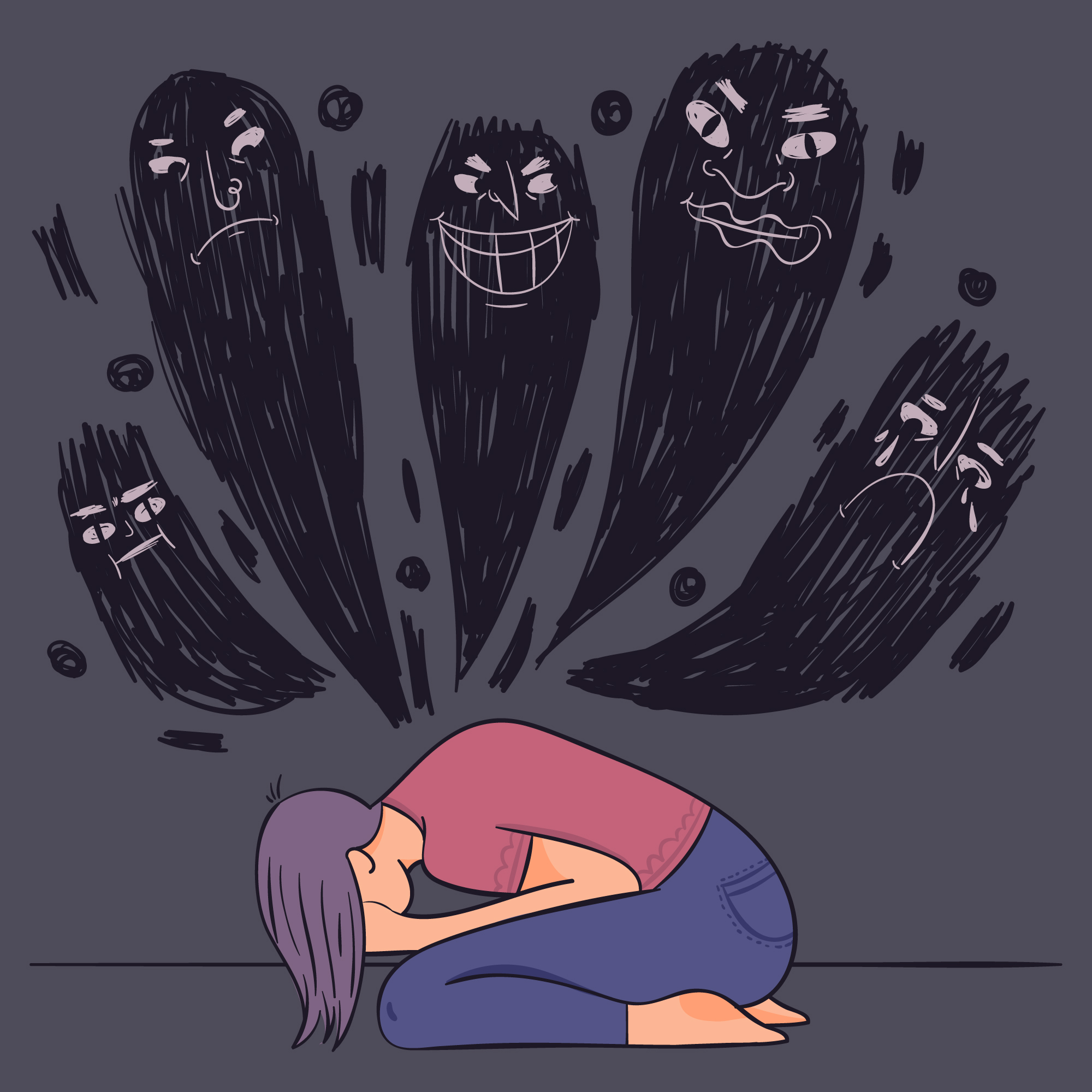Schizophrenia is a serious mental health condition that affects how people think, feel, and behave. It is not the same as having a split personality, which is a common myth. Instead, schizophrenia makes it hard to separate reality from imagination. People may experience different schizophrenia symptoms such as hallucinations, delusions, and disorganized thoughts that disturb daily life.
According to the World Health Organization (WHO), schizophrenia affects about 24 million people worldwide. Early detection and proper treatment make a huge difference in managing this disorder. If you are wondering what Schizophrenia symptoms, causes and treatments in 2025 that you must know and explore how to live with it, scroll down to this guide.
What is Schizophrenia?
Schizophrenia is a long-term brain disorder. It changes the way a person interprets the world. People may hear voices that others cannot or believe things that are not real. These experiences are not simply quirks but signs of a serious condition needing attention.
Schizophrenia Symptoms
Schizophrenia is a complex mental health disorder that affects how a person thinks, feels, and behaves. Schizophrenia symptoms usually appear in late adolescence or early adulthood and are divided into three categories: positive, negative, and cognitive symptoms. Recognizing them early is crucial for timely treatment and improved quality of life.
1. Positive Symptoms
These are symptoms that add abnormal behaviors not typically seen in healthy individuals:
- Hallucinations: Hearing voices, seeing things, or feeling sensations that are not real. The most common are auditory hallucinations, where people hear voices giving commands or commentary.
- Delusions: Strong false beliefs, such as thinking someone is spying on them, having extraordinary powers, or believing unrelated events are directed at them.
- Disorganized Speech and Thought: Difficulty organizing thoughts, speaking in fragmented sentences, or jumping rapidly from one topic to another.
- Movement Disorders: Agitation, repetitive movements, or in rare cases, catatonia (lack of movement and response).
2. Negative Symptoms
Negative symptoms reflect the absence of normal behaviors and are often mistaken for depression:
- Lack of Motivation (Avolition): Reduced ability to initiate or sustain daily activities such as work, studies, or hygiene.
- Social Withdrawal: Avoiding friends, family, and social gatherings.
- Blunted Affect: Reduced emotional expression, such as speaking in a flat tone or showing little facial expression.
- Anhedonia: Inability to experience pleasure from normally enjoyable activities.
3. Cognitive Symptoms
These schizophrenia symptoms affect memory, concentration, and decision-making, making daily functioning difficult:
- Poor Attention: Struggling to focus on tasks or conversations.
- Impaired Working Memory: Forgetting information immediately after learning it.
- Executive Dysfunction: Difficulty in planning, organizing, or making decisions.
Early Warning Signs
Before full symptoms appear, many individuals show prodromal symptoms, which can last months or years:
- Social isolation and reduced interest in activities.
- Sudden decline in school or job performance.
- Unusual or suspicious behavior.
- Trouble sleeping or irregular sleep patterns.
According to the National Institute of Mental Health (NIMH), early identification of these symptoms combined with prompt medical support significantly improves long-term outcomes for patients.
Causes of Schizophrenia
Doctors do not know the exact cause of schizophrenia. But research points to several factors:
- Genetics: Family history increases risk.
- Brain chemistry: Imbalances in dopamine and glutamate play a role.
- Environment: Stress, trauma, or viral infections during development may contribute.
A mix of these factors usually triggers the disorder.
ALSO READ
Schizophrenia Types – Are They Same Or Different In Nature
How Schizophrenia Impacts Life
Schizophrenia affects daily life in many ways. People may struggle at work, in school, or in relationships. The disorder can also increase the risk of anxiety, depression, or substance abuse. Without treatment, schizophrenia may lead to social isolation and disability.
Treatment Options for Schizophrenia

Schizophrenia is treatable, though not curable. With proper care, people can live meaningful lives.
1. Medications
Antipsychotic drugs are the first-line treatment. They help reduce hallucinations and delusions.
2. Therapy
Cognitive Behavioral Therapy (CBT) and supportive counseling improve thinking patterns and coping.
3. Supportive Services
Rehabilitation, housing help, and job training aid independent living.
4. Healthy Lifestyle
Exercise, proper diet, and regular sleep improve resilience and brain health.
5. Family Education and Support
Family therapy and awareness reduce stress at home and strengthen relationships.
6. Social Skills Training
Helps patients improve communication, daily tasks, and confidence in social situations.
7. Hospitalization (When Needed)
Short-term hospital stays stabilize symptoms during crises and ensure safety.
8. Electroconvulsive Therapy (ECT)
Used when medications and therapy do not work. Safe under medical guidance.
9. Peer and Community Programs
Support groups and community centers reduce isolation and give emotional comfort.
10. Emerging Treatments
Researchers are testing brain stimulation therapies and digital mental health tools. These show promise for future care.
Living With Schizophrenia
Living with schizophrenia is challenging but possible with the right care. Many people continue their education, careers, and relationships while managing the condition. Family support plays a crucial role in recovery.
Community programs, peer groups, and counseling help reduce feelings of isolation. Daily routines, stress management, and open conversations about symptoms also make life easier. With treatment and support, people can live meaningful and productive lives despite the diagnosis.
Sum Up
Schizophrenia is a complex mental health condition that affects how a person thinks, feels, and behaves. Its causes are linked to a mix of genetic factors, brain chemistry imbalances, and environmental triggers. The schizophrenia symptoms range from hallucinations and delusions to social withdrawal and cognitive difficulties, making early recognition vital.
Although there is currently no complete cure, effective treatments such as antipsychotic medications, psychotherapy, and strong support systems can greatly improve quality of life. With timely diagnosis and consistent care, many people with schizophrenia are able to manage symptoms, reduce relapses, and live meaningful lives.
FAQs
What is the main cause of schizophrenia?
The main cause of schizophrenia is not fully understood, but research suggests a mix of genetics, brain chemistry (dopamine and glutamate imbalance), and environmental triggers such as trauma or infections. Studies from the National Institute of Mental Health (NIMH) highlight family history as one of the strongest risk factors.
What to avoid with schizophrenia?
People living with schizophrenia should avoid alcohol, recreational drugs, and high-stress environments, as these can worsen symptoms like hallucinations and delusions. Skipping prescribed antipsychotic medications also increases relapse risk. A structured routine, sleep hygiene, and healthy diet are strongly recommended.
What are the schizophrenia symptoms, causes, and treatment?
Schizophrenia symptoms include hallucinations, delusions, disorganized thinking, and social withdrawal. Causes involve genetics, brain structure differences, and environmental stressors. Treatments usually combine antipsychotic medications, cognitive behavioral therapy (CBT), and psychosocial support for long-term management.
Is there a cure for schizophrenia?
Currently, there is no permanent cure for schizophrenia, but modern treatments can effectively manage symptoms and improve quality of life. Advances in psychiatry and FDA-approved schizophrenia drugs help patients live more stable, productive lives when combined with therapy and community support.
Who is at most risk for schizophrenia?
Individuals with a family history of schizophrenia, those exposed to prenatal malnutrition, childhood trauma, or substance abuse (especially cannabis) are at higher risk. According to WHO, young adults in their late teens to early 30s face the highest vulnerability.
What age does schizophrenia start?
Schizophrenia typically begins between ages 16–30, with men often showing earlier onset than women. Early warning signs may include social withdrawal, decline in academic performance, and unusual thought patterns. Childhood-onset schizophrenia is rare but more severe.
Sources: WHO, National Institute of Mental Health (NIMH)



Join The Discussion